1996 Toyota RAV4 Tires & Services
Get Started
Complete Auto Care for Your 1996 Toyota RAV4
-
TIRES FOR YOUR 1996 Toyota RAV4 View Tire Info GET TIRE PRICING
-
REPAIR FOR YOUR 1996 Toyota RAV4 View Repair Info SCHEDULE REPAIR
-
MAINTENANCE FOR YOUR 1996 Toyota RAV4 View Maintenance Info SCHEDULE MAINTENANCE
-
OFFERS FOR YOUR 1996 Toyota RAV4 Limited Time Tire Offers VIEW ALL COUPONS
1996 Toyota RAV4 Tires
Recommended Tires | Tire Information
1996 Toyota RAV4 Tires Sizes, Speed Ratings, and Inflation
Not sure about your 1996 Toyota RAV4 tire size? Use the following chart to find information on tire size, speed rating, and inflation.
| Trim Level | Speed Rating | Inflation in PSI F/R | Tire Size |
|---|---|---|---|
| 1996 Toyota RAV4 Base* | S | 28 PSI/26 PSI | 215/70R16 |
| 1996 Toyota RAV4 Base* | S | 26 PSI/26 PSI | 215/70R16 |
|
1996 Toyota RAV4 Base* Speed Rating: S Inflation F/R: 28 PSI/26 PSI |
|
1996 Toyota RAV4 Base* Speed Rating: S Inflation F/R: 26 PSI/26 PSI |
* Note: these models have different tire sizes depending on vehicle options.
Recommended Tires for Your 1996 Toyota RAV4
What tires are best for a 1996 Toyota RAV4? Check out the following tire brands and types.
 Blizzak DM-V2
Blizzak DM-V2
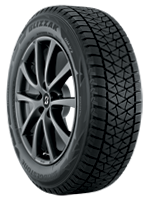
- No warranty
- Winter
- Winter
 Ecopia H/L 422 Plus
Ecopia H/L 422 Plus
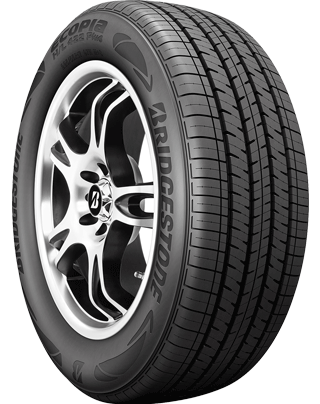
- Platinum Pact Limited Warranty
- All-Season
- Light Truck Tires
 WEATHERPEAK
WEATHERPEAK
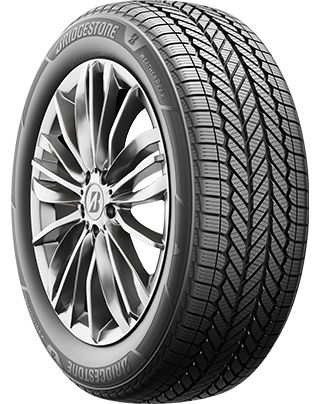
- Platinum Pact Limited Warranty
- All-Season
- Passenger Tires
 ALL SEASON
ALL SEASON

- No warranty
- All-Season
- Passenger Tires
 Destination LE3
Destination LE3
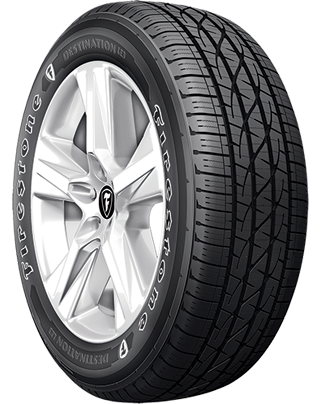
- No warranty
- All-Season
- Light Truck Tires
 WEATHERGRIP
WEATHERGRIP
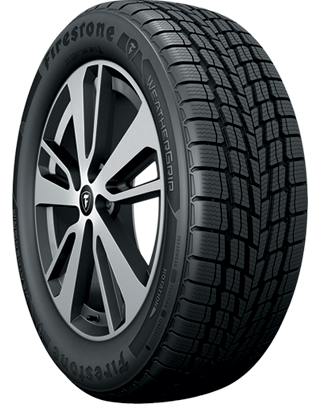
- No warranty
- All-Season
- Passenger Tires

- No warranty
- All-Season
- Passenger Tires

- No warranty
- All-Season
- Passenger Tires
 OPEN COUNTRY A/T III
OPEN COUNTRY A/T III
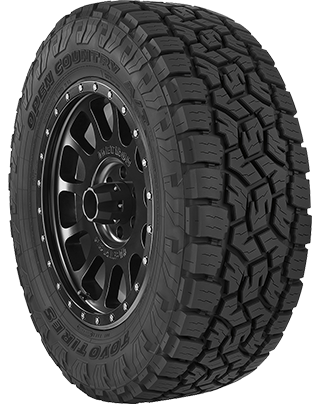
- No warranty
- All-Season
- Light Truck Tires
Choosing 1996 Toyota RAV4 Tires
Other than getting the proper tire size, there are a couple of other factors to consider when buying Toyota RAV4 tires like how and where you drive, and how much you want to spend. Think about where you live (countryside vs. city vs. mountains) and the kind of unexpected weather you're likely to experience when evaluating your driving conditions. Drivers in states that fully experience all four seasons often buy two sets of tires: one for summer and one for winter. Other drivers buy one set of all-season tires instead. That way they don't have to return to the tire shop and their vehicle is always ready for sun, rain, and light snow!
Next, consider your driving style. If you're a big off-roading fan who forges paths where others can't, you have very different needs than a long-distance commuter who sticks to the highway. Visit your local Firestone Complete Auto Care for help selecting the tire that's right for you, or get started by browsing tires that fit your Toyota RAV4.
Toyota RAV4 Installation and More
Firestone Complete Auto Care has been a leading tire provider for more than a century. We're a tire store that also offers professional tire installation, maintenance, and rotation, along with complete auto care. We make it easy to buy new 1996 Toyota RAV4 tires online and book an installation appointment at the same time.
Questions About 1996 Toyota RAV4 Tires
-
Why does Toyota tire inflation matter? A small decrease in tire pressure can have a big impact on your driving. Maintaining proper tire pressure can help improve braking time, increase fuel economy, and boost tire lifespan.
-
What do the numbers on my Toyota RAV4 tires mean? Your tire sidewall numbers tell you the recommended load carrying capacity, speed rating, treadwear, traction, and tire size. Talk to a tire technician to learn how to read Toyota tire numbers.
-
How do I check the tread depth on my Toyota tires? Stay on top of your tire tread depth to help avoid a dangerous drive. You can check tread depth with a penny. Hold the penny so that Abraham Lincoln is facing you, then place your penny into a tread groove upside down. If you can see the top of Abe’s head, your tread is shallow and it might be time for new Toyota RAV4 tires. Grab a penny. Hold the so that Abe Lincon's head is facing you and his hair is pointing toward the ground. Then, place the penny into a tread groove. If you can see the top of Abe’s head, your tread is shallow and it might be time for new Toyota RAV4 tires.
1996 Toyota RAV4 Repair
When to repair, when to replace? Click on a repair below to learn more about Toyota RAV4 repairs at Firestone Complete Auto Care.
Get Repairs for Your 1996 Toyota RAV4
Car repairs: for many drivers, that phrase is a dreadful one. We’re here to change that, though. At Firestone Complete Auto Care, we want to make car repair painless and hassle-free. When it’s time for 1996 Toyota RAV4 repair services, head to your nearest Firestone location and our skilled repair technicians will get your RAV4 back on the road. Before we begin any repair work, we’ll diagnose any issues and answer your questions about potential repair options. We’ll never recommend a repair we don’t think is necessary for your safety or the performance of your Toyota.
What Will Toyota RAV4 Repairs Cost?
The cost to repair your 1996 Toyota RAV4 depends on what kind of repair you need, the cost of any replacement parts, the amount of labor necessary to get the job done, and your locale. And check back often — we update our deals regularly!
A few different aspects can influence repair costs for your 1996 Toyota RAV4, like
Questions About 1996 Toyota RAV4 Auto Repairs
-
Can scheduled maintenance help me avoid repairs? The cheapest 1996 Toyota RAV4 repair is the one that isn’t necessary in the first place! Staying up-to-date with your car’s scheduled maintenance services is a great way to keep future repair costs low.
-
What's wrong if something feels 'off' in my Toyota? No, we’re not talking about finding the best jams on the radio! You know your car best, and you’re the first person who will notice if something doesn’t feel right (like new smells, sights, or sounds coming from your car). If you sense that something is 'off,' stop in for a Courtesy Check to have these symptoms checked out ASAP. Early action could help you prevent Toyota RAV4 repairs.
-
Why do you recommend certain repairs for my Toyota? Trust is more than just a saying on the wall. It’s a window underneath it. That’s why we won’t recommend services or repairs for your 1996 Toyota RAV4 unless we think they’re vital to your safety on the road.
Brake Repair for Your 1996 Toyota RAV4
Your Toyota RAV4 engine may be strong and reliable. But if you can’t brake, it might as well be scrap metal. Don't wait if you're experiencing brake squeaks or a loss of braking power. Safe driving is difficult when your brakes are anything but their best. What's more, waiting for things to figure themselves out can result in more damage to your brakes and your wallet. Go to your local Firestone Complete Auto Care for 1996 Toyota RAV4 brake repairs. Our brake repair services include pad/shoe replacement, rotor/drum resurfacing, brake fluid exchange, and brake caliper and wheel cylinder installation.
Toyota RAV4 Brakes Frequently Asked Questions
-
Why is my RAV4 shaking as I brake? If your RAV4 shakes when you brake, you could be dealing with warped rotors, faulty brake calipers, worn brake pads or rotors, or loose or worn suspension parts. Schedule a free brake inspection at Firestone Complete Auto Care for help diagnosing your brake issue.
-
How long should my RAV4 brake pads last? Brake pads generally last between 30,000 and 40,000 miles. Your driving can affect how long your RAV4 brake pads last, though. For example, mainly driving on highways and gradually braking can help increase the lifespan of your brake pads, and carrying hefty loads or riding your brakes can shorten it.
-
Can brake fluid leak when my RAV4 is off? Your RAV4 brake system is a closed hydraulic system, so a brake fluid leak likely means you have an issue in your brake system. Over time, brake components can wear out or get damaged, causing a brake fluid leak.
1996 Toyota RAV4 Drivetrain Repairs
Drivetrains for front, rear, and all-wheel-drive and 4WD vehicles are not all the same. You don't want to go to any random shop for drivetrain repair. You want to come see the technicians at Firestone Complete Auto Care. We can fix many 1996 Toyota RAV4 drivetrain components Your Toyota RAV4 may need driveshaft attention if you feel resistance when turning, heavy vibrations in your floorboards, clunks when shifting, or vibration as your vehicle accelerates.
Questions About 1996 Toyota RAV4
-
What are the symptoms of a damaged Toyota drivetrain system? Your Toyota RAV4 drivetrain might be damaged if you notice strange noises from the rear of your vehicle, see fluid leaking, or have issues turning.
-
Why is the malfunction indicator light (MIL) on in my RAV4? If your RAV4 has its malfunction warning light (more commonly called the check engine light) illuminated, it could indicate engine troubles, problems with the transmission, electrical issues, malfunctioning sensors, connector problems, or misfire issues.
-
How concerning is a drivetrain malfunction in my RAV4? A drivetrain malfunction in your RAV4 should never be taken lightly. Driving with a malfunctioning drivetrain can put you in danger and lead to further vehicle damage, so it's essential to have a qualified mechanic assess and repair the problem as soon as possible.
Wheel Alignment for 1996 Toyota RAV4
With an alignment service, adjustments are made to your Toyota RAV4’s suspension system, which serves to attach your wheels to your vehicle. During the service, calculated changes are made to the angles of your tires. This is so that your tires hit the road at an optimal angle for your vehicle’s performance — just as Toyota intended. When you bring in your 1996 Toyota RAV4, we’ll perform an alignment check first. If needed, we'll adjust your wheel alignment angles to match Toyota recommendations.
Toyota RAV4 Alignment Questions
-
What can knock my Toyota RAV4 out of alignment? Potholes and uneven roads can knock your car out of alignment, so stay aware of the road ahead and adjust your speed (or avoid these obstacles whenever it’s safely possible).
-
How often does your RAV4 need a wheel alignment? Check your RAV4 owner's manual for Toyota's recommended interval. It's generally a good idea to check your alignment every 6,000 miles or 6 months, depending on which comes first.
-
Do you need an alignment with new RAV4 tires? It’s likely not a requirement to get an alignment when you install new tires on your RAV4, but it's a smart idea to do so anyway. An alignment can help ensure even tire wear, smooth handling, and better fuel efficiency.
Engine Repairs for Your 1996 Toyota RAV4
If your 1996 RAV4 engine needs repairs, our technicians will provide you with a thorough explanation beforehand. We don't start working until we have your approval. If a service can wait, we’ll make sure you know. If it's necessary for your safety, we'll make sure you understand that, too. We want to give you all the details you need to make an informed decision about your engine repairs. Turn to Firestone Complete Auto Care for your 1996 RAV4 engine repairs and you can feel confident knowing that we use Toyota-approved parts and components like the serpentine belt, oil gasket, sensors, or a different component.
1996 Toyota RAV4 Engine Q&A
-
Why does the check engine light come on when I start my RAV4? It’s usually normal for your check engine light to turn on upon ignition. This is just your RAV4 testing its circuits. The dash light shouldn't stay on. If it does, you might want to bring your vehicle in for service.
-
Why is my Toyota RAV4 making engine noise? Strange engine sounds can be a sign something’s off in your Toyota RAV4. Knocking or tapping could be a symptom of low oil. A high-pitched whistle could signal an intake leak or misaligned belt. Squealing can be traced back to a loose fan belt, and grinding might be a sign of brake problems rather than engine issues.
-
What could damage a Toyota engine? Certain driving habits can damage your engine and should be avoided. These habits include 'running on fumes,' revving the engine while still in Park, or pushing 'the pedal to the metal' before the engine has warmed up. Help sustain your engine’s performance and efficiency by staying miles away from these bad driving practices.
Tire Repair for Your 1996 Toyota RAV4
Firestone Complete Auto Care is here for you when your 1996 Toyota RAV4 needs flat tire repair or inspection. In some cases, a tire doesn’t have to be replaced – it can be plugged and patched with a simple repair. Depending on the damage, though, a repair might not be the right move. Our technicians can determine which option is best for your situation. We'll start by evaluating the state of wear, the location of damage, type of damage, and the size of the damage.
If we determine that your 1996 Toyota RAV4 tire can be safely repaired, we’ll get to work on the steps to fix it: (1) Separate the tire from the vehicle wheel, (2) fill in the area that’s been punctured to prevent damage from moisture, and (3) secure and seal the inner tire liner to ensure the tire is airtight.
Frequently Asked Toyota RAV4 Tire Repair Questions
-
How soon should I have my flat tire repaired? A flat tire that’s not addressed can take a terrible toll on the rest of your car. Until you have it repaired or replaced, drive your RAV4 as little as possible to reduce your risk of damage to the wheels and alignment – or further damage to that already struggling tire!
-
Will a temporary sealant fix my Toyota's flat tire? Fast fixes are a mixed blessing. They’ll help you get your Toyota RAV4 to Firestone Complete Auto Care, but don’t count on them to keep you on the road for very long. Using a temporary sealant may also void a Bridgestone or Firestone tire warranty.
-
Why do my RAV4 tires keep losing air? Tire punctures, damaged wheels, and leaking valve stems are possible reasons for your RAV4 tires continuously losing air.
1996 Toyota RAV4 Maintenance
Take care of your Toyota RAV4 and it'll take care of you. With the right maintenance at the right time, your RAV4 has a good chance of hitting 200,000 miles or more.
Guide to 1996 Toyota RAV4 Scheduled Maintenance
It can be overwhelming, but fortunately, there’s a resource that takes the guesswork out of routine RAV4 maintenance. It’s as easy as following the recommended maintenance schedule that’s been written specifically for your 1996 Toyota RAV4! Toyota knows your vehicle inside and out (they made it, after all!), so they’ve designed this schedule with your car’s unique needs in mind. Scheduled maintenance services can vary depending on driving conditions, climate, and other factors; however, there’s a good chance that your vehicle’s recommended maintenance services will include tire rotations, vital fluid checks/exchanges, filter changes, brake pad replacement, and oil changes. Scheduling routine service appointments is one of the best ways to help extend your RAV4's life, decrease your risk of dangerous malfunctions on the road, and help you avoid expensive repairs caused by 1996 Toyota RAV4 problems later.
Overview of Essential Toyota RAV4 Maintenance Needs
Head to your nearest Firestone Complete Auto Care in your 1996 Toyota RAV4 for factory-recommended routine maintenance and our technicians will jump right in with a Courtesy Check. A Courtesy Check helps "set the stage" for your service and catch any small problems before they turn into big repairs. Every Courtesy Check will include a visual inspection of your RAV4. We’ll check your head and tail lights, fluid levels, filters, tires (and their alignment!), and windshield wiper blades. We’ll also perform a free battery check to determine your battery’s charge level.
Firestone Complete Auto Care is your spot for 1996 Toyota RAV4 maintenance. We can help you keep your vehicle (and your life!) running smoothly. Many of our locations have weekend and evening hours for your convenience.
1996 Toyota RAV4 Maintenance Q&A
-
When should I have Toyota RAV4 alignment checked? Watch out for pothole damage. If your 1996 RAV4 is pulling to one side or the other, your tires or suspension system could be calling out for help.
-
When does my Toyota RAV4 need high mileage oil? Got 75,000+ miles on the odometer? Consider high mileage motor oil. High mileage oil is formulated to address the specific problems encountered by high mileage vehicles, or those with more than 75,000 miles. It can help reduce oil consumption, smoke, and emissions from older Toyota RAV4 engines.
-
Why are my Toyota dashboard lights on? Don't ignore dashboard warning lights! Bring your Toyota RAV4 in for a diagnostic code scan as soon as a dashboard warning light flashes on, whether it's your check engine or battery light. Dashboard lights alert you to trouble under the hood.
1996 Toyota RAV4 Battery Replacement & Size
Researching battery replacements for your Toyota RAV4?
| Battery | Engine | Warranty | Cold Cranking Amps | |
|---|---|---|---|---|
| 35-1 | L4/2.0L | Replacement 24 months | Performance months | 500 |
| 35-2 | L4/2.0L | Replacement 36 months | Performance months | 640 |
| 35-AGM | L4/2.0L | Replacement 36 months | Performance months | 650 |
1996 Toyota RAV4 Car Batteries
On average, auto batteries last anywhere from three to five years. Check your battery regularly and replace it as needed so it doesn’t leave you and your Toyota RAV4 stranded. Look out for symptoms of a faulty car battery. A lagging starter, an illuminated check engine light or battery signal, bloated battery case, corroded battery terminals, or dim headlights can all be signs that your battery is on its last leg.
Or, you can get a complimentary battery check at your nearest Firestone Complete Auto Care. Visit us for a complimentary battery check and, if needed, a replacement battery for your 1996 Toyota RAV4. Car batteries are only one of our many strong suits. Our technicians are familiar with Toyota-specific recommendations for RAV4 car batteries’ reserve capacities and cold cranking amps. Get help choosing the battery size that's best for your RAV4, and schedule an appointment today for a quick car battery replacement.
Answers to Your Toyota RAV4 Car Battery Questions
-
Why won't my Toyota RAV4 battery stay charged? A battery is in its final hour when it will no longer hold a charge. The battery may be too old. Or, you may have been leaving your car doors ajar and the cabin light at night. Stop by for a complimentary battery check at your favorite Firestone Complete Auto Care and get a handle on your car battery’s health.
-
How long can I expect my car battery to last? The typical 12-volt car battery may last three to five years, depending on the type of battery, the driving conditions, and how well the battery is maintained.
-
Why is there white, crusty buildup on my RAV4’s battery post? The white, flaky stuff that can build up around your RAV4’s battery terminals is known as corrosion. Acid leaking from your vehicle’s battery post can have a chemical reaction with the air, leading to an accumulation of the white, powdery substance over time. Corrosion can affect the flow of electricity between your battery and the electrical system in your RAV4, possibly causing issues with electrical performance and starting. If left unaddressed for long enough, it may even cause your battery to prematurely fail.
1996 Toyota RAV4 Oil Change Service
Toyota recommends changing your 1996 RAV4’s oil at regular intervals. Your RAV4 may need an oil change right away if your check engine/oil change light is on, you hear engine knocking, smell oil inside the car, or see an excess amount of vehicle exhaust. You may also need an oil change more frequently than Toyota recommends if you haul heavy loads, frequent dusty roads, enjoy off-roading, or go at low speeds on long distance trips.
Whether you need high mileage oil, synthetic oil, or conventional oil, you'll find the right 1996 Toyota RAV4 motor oil at Firestone Complete Auto Care. Consult Toyota's recommendations to select the right 1996 RAV4 oil and talk with a teammate to learn more about our oil options: Quaker State® Advanced Durability™ conventional oil, Pennzoil® High Mileage Vehicle® motor oil, Pennzoil Platinum® Full Synthetic motor oil with PurePlus™ Technology, and Shell Rotella® heavy-duty engine oil. In an oil change service, one of our techs will change your RAV4’s oil, replace and recycle your used oil and filter, inspect the rest of your car’s filters, top-off important fluids, and perform a courtesy inspection on your entire vehicle. Make an appointment for an oil change service today and let the oil experts take care of your RAV4's engine.
1996 Toyota RAV4 Oil Change Questions
-
Why is the oil light on in my Toyota RAV4? Your Toyota RAV4 oil change reminder light may come on if you're overdue for an oil change. The oil pressure light will typically come on if the oil level in the engine is too low, the oil pump is failing, you have a clogged oil filter, or there's a faulty oil pressure sensor.
-
How hard is it to change Toyota RAV4 oil at home? Changing your own oil isn't as convenient as you might think. It requires special tools and old oil must be disposed of properly. Having your oil professionally changed reduces the chances of something going wrong with the oil change, but also with your vehicle down the road.
-
Why is my Toyota RAV4 exhaust smoke grayish or blue? You could have an oil leak and have a case of burning oil. Looks like it’s time for a professional to take a look. The leak could be the result of worn valve seals, fried piston rings, or old cylinder walls.
Engine Tune-Up Service for Your 1996 Toyota RAV4
Regular engine tune-ups can optimize your RAV4’s power on the road. Your nearest Firestone Complete Auto Care location has several options to choose from when it comes to Toyota RAV4 engine tune-up services. The standard Firestone Tune-Up is one service option. The standard Firestone Tune-Up includes new spark plugs (and installation!), a thorough inspection of engine components, and a lifetime parts warranty*. A second service option replaces the air and fuel filter in your RAV4. Our third service is a thorough cleaning of the fuel system. During this type of tune-up, we use a three-step process to get rid of harmful varnish, dirt, and carbon deposit buildup in your RAV4’s fuel injectors, throttle body, and throttle plate. The result? Restored fuel system performance. Keep in mind that your RAV4's mileage and maintenance history can uniquely impact its tune-up needs. Chat with a Firestone technician before you jump into a specific service to ensure your engine tune-up money is well-spent.
*Talk to a Firestone Complete Auto Care teammate for full terms and conditions on warranties.
Common Engine Tune-Up Q&A for 1996 Toyota RAV4
-
What happens if my Toyota RAV4 spark plugs fail? Replace spark plugs on time or about every 30,000 miles or so. Without the spark of electricity created by spark plugs, your engine doesn’t have the combustion it needs to start — which could leave you stranded on the road. Always replace your spark plugs on time based on Toyota’s recommendations.
-
What should I do if I see leaks under my RAV4? Don't ignore puddles of fluid under your Toyota RAV4. It could signal a coolant leak, brake fluid leak, or an oil leak. Let any one of these leaks linger and it could cause engine damage.
-
How frequently do the fuel injectors in my Toyota RAV4 need to be cleaned? The frequency at which car fuel injectors should be cleaned can vary depending on several factors, including the type of fuel used and the driving conditions. Some manufacturers generally recommend a fuel system cleaning as part of your general car maintenance, or as needed based on symptoms of poor fuel system performance.
1996 Toyota RAV4 Suspension Service & Repair
When you first bought your 1996 Toyota RAV4, the ride was probably so smooth that you didn’t even think about it! Lately, though, your ride’s been feeling a little bumpy. Perhaps your RAV4 feels bouncy, sways to one side, or makes an unusual noise when going over a speed bump. The first sign of problems is a good time to bring your 1996 Toyota RAV4 in for suspension and steering service. We’ll get to the source of your car problems and, if your RAV4 suspension system needs repair, we'll explain all of your options and the potential cost.
1996 RAV4 Steering & Suspension Q&A
-
Why is my Toyota RAV4 bouncing so much? If it feels like you’re on a trampoline every time your RAV4 goes over a bump or dip, you may have a problem with your struts or shocks. Faulty shocks and struts can’t properly absorb road bumps, leading to a bouncy ride.
-
Why does my RAV4 tilt forward when I hit the brakes? The forward momentum and weight transfer to the front wheels during braking can cause your RAV4's front end to dip forward. A damaged or faulty suspension system may fail to distribute the weight and force effectively, causing the front end to dip even more.
-
What role do tire pressure and tread depth play in my Toyota's suspension? Proper tire care can reduce strain on the suspension system, and also alert you to the need for new tires. Uneven tire wear is one sign of steering and suspension system problems, but it can also contribute to more.
A/C Service for Your 1996 Toyota RAV4
Technicians at Firestone Complete Auto Care are ready to help you address your 1996 Toyota RAV4 A/C problems. During this initial A/C performance check, we’ll look at the state of your 1996 Toyota RAV4’s A/C system to determine whether repair work is needed. We’ll test overall system performance, check for any leaks, and measure the system pressure.
Let's say we repair your 1996 Toyota RAV4 A/C system. We will also perform an A/C evacuation and recharge. To start this process, a technician will flush out the old refrigerant from your vehicle’s A/C system. Next, they will evacuate the system according to Toyota's recommendations. The A/C system is recharged with new refrigerant.
1996 Toyota RAV4 A/C System FAQs
-
Why do I get hot air from my RAV4 A/C? Maybe your A/C starts cool but then gets warm. Or maybe it never gets cold in the first place. Either way, your A/C troubles could be traced back to a clogged expansion valve, faulty compressor clutch, blown fuse, or leak.
-
What causes A/C system leaks? A/C system leaks are often due to a combination of age and moisture. Rubber seals and gaskets naturally degrade over time, allowing refrigerant to exit and moisture to enter your RAV4's A/C system.
-
Why does my vehicle have to be moving for my RAV4’s A/C to work? A problem with one or more of your air conditioning or electrical system components could cause the A/C to only work when your RAV4 is moving. You may be low on refrigerant, or the cooling fan could be faulty.
Transmission Services for 1996 Toyota RAV4
The transmission delivers power from the motor to your wheels so that you can drive at your desired speed. Because of the transmission’s responsibility to translate the right dose of power into the right amount of speed, a small transmission issue can put a big dent in your RAV4’s performance. 1996 Toyota RAV4 transmission problems can show up as shifting delays, jumping or grinding during acceleration, the car shaking on the road, or whistling noises or a burning smell coming from beneath the hood. If you ignore Toyota RAV4 transmission issues your could suffer a loss in fuel efficiency or discover that your RAV4’s not even driveable. Our technicians know how to service your 1996 RAV4 up to Toyota-recommended standards. If you think there’s something wrong with your RAV4’s transmission, schedule an appointment at your local Firestone Complete Auto Care to help keep your Toyota running for miles and miles.
Questions About 1996 Toyota RAV4’s Transmission
-
When should I have my RAV4's transmission fluid checked or exchanged? Regularly checking and exchanging your 1996 RAV4’s transmission fluid is one of the best ways to help the transmission system perform. Some technicians would say that between 30,000 and 60,000 miles is a good timeframe for having your Toyota's transmission fluid checked and replaced, but that timeline can vary depending on how your vehicle is used and your manufacturer’s recommendations. The good news is that transmission fluid leaks are affordable to repair and easy to spot.
-
Is it possible for transmission fluid to leak from my Toyota RAV4? Over time, transmission fluid can leak from your Toyota RAV4, potentially causing transmission problems. A transmission fluid leak may be caused by a damaged transmission pan, faulty transmission cooler lines, worn-out seals, a cracked transmission housing, or an overfilled transmission.
-
Can I drive my Toyota RAV4 with a transmission fluid leak? You should avoid driving with a transmission fluid leak. Your transmission system relies on transmission fluid to operate properly, and a leak may decrease performance, cause your RAV4 to overheat, or even lead to transmission failure.
Vehicle Inspection for 1996 Toyota RAV4
When you bring your vehicle to Firestone Complete Auto Care for any service, we’ll automatically do a multi-point Courtesy Check. First, a technician will pop the hood on your Toyota RAV4 and test the battery to find out how much charge is remaining on it. The check will continue with a visual inspection of your Toyota RAV4's windshield wiper blades, lights, filters, alignment, tires, hoses, belts and fluid levels.
We perform a Courtesy Check any time you bring your car to a local Firestone Complete Auto Care for service, but we also offer an in-depth Complete Vehicle Inspection for your 1996 Toyota RAV4. In addition to a visual check of everything that's included in a Courtesy Check, a Complete Vehicle Inspection also includes a thorough manual inspection of your exhaust system, steering and suspension, and brakes. This inspection is aimed at informing you of any major problems that could need immediate attention in order to prevent further damage.
Depending on where you live, you may be able to complete your vehicle’s safety tests or state inspection at your nearest Firestone Complete Auto Care. These inspections are governed by state automotive laws and may vary in different locations.
Common 1996 Toyota RAV4 Vehicle Inspection Questions
-
How do I know if my Toyota RAV4 needs a check-up? If you’ve noticed something that doesn’t feel quite right in your car lately, a Courtesy Check could give you peace of mind. We can help you get to the bottom of strange engine noises, a jerky steering wheel, or an engine that's hard to start.
-
Help! My 1996 Toyota RAV4 failed the state inspection test. Can you get it to pass? There's a good chance we can. Stop by for a full system inspection and we'll get to the root of the issue.
-
When is the best time to get a complete vehicle inspection for my Toyota RAV4? The best time to get a complete vehicle inspection for your Toyota RAV4 is before going on a road trip for the peace of mind. Another great time is when something abnormal occurs, and you can't pinpoint the issue. You might notice new dashboard lights, hear strange noises from under the hood, or your steering wheel doesn't feel like it once did.
Radiator Service & Repair for 1996 Toyota RAV4
Regular, proactive service on the radiator in your 1996 Toyota RAV4 is crucial to keep your engine in the best possible shape for years to come. In fact, Toyota recommends replacing coolant/antifreeze at specific intervals, but you can also take note of any signs your radiator is going bad. You could be on the verge of a radiator-induced engine breakdown if you notice leaking coolant, overheating, or an illuminated low coolant dashboard light.
At Firestone Complete Auto Care, we start by performing a thorough inspection of your Toyota RAV4 cooling system. We’ll do a machine-powered coolant exchange on the system, and then we’ll top off or replace the fluids that were removed (like chemicals, lubricants, and sealants). Lastly, we’ll perform a pressure check to look for leaks. If you’re about to lose your cool over a too-hot engine, rest assured that we’re here to give your 1996 Toyota RAV4 the top-notch service it needs.
Common Toyota RAV4 Radiator Questions
-
What does an illuminated coolant temperature light mean for my Toyota? Pay attention to the temperature gauge and lights on your dashboard. If a low coolant warning light comes on or your dashboard temperature gauge keeps rising, it’s likely that your engine is about to overheat (and could leave you stranded on the road). Wait for the engine to cool down, then have your coolant system checked immediately at your nearest Firestone Complete Auto Care.
-
What is causing my RAV4 to overheat? Low coolant, a damaged cooling fan, a faulty water pump, a malfunctioning thermostat, or a clogged radiator could all cause your Toyota RAV4 engine to overheat.
-
Why does the radiator in my RAV4 sound like it’s rumbling or boiling? If your radiator sounds like it's boiling or rumbling, you could have air pockets in the cooling system of your RAV4. You might also have a damaged radiator cap (super easy to fix!) or a clogged radiator.